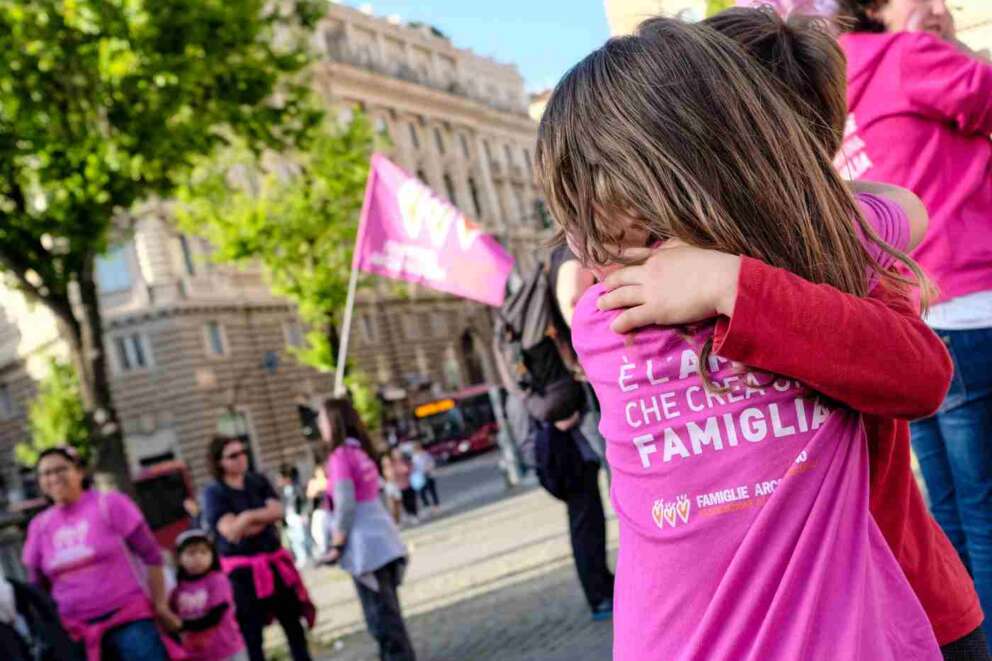A slap in the face from the Consulta to the Meloni government: "Two mothers? It's possible"

The ruling of the Constitutional Court
The Constitutional Court remedies the right's inertia with a ruling that remedies the critical issues of stepchild and recognizes the legitimacy of intentional motherhood

It may be a coincidence but this time too the Constitutional Court intervened on the same day with two fundamental sentences on the issue of parenthood for homosexual couples.
In 2021, there were twin rulings in which the Court held that resorting to adoption in special cases for children born in Italy but conceived abroad through the use of heterologous fertilization by a female couple and gestation for others by a male couple undoubtedly constituted a significant but not yet entirely adequate form of protection of the minor's interests because it did not attribute parenthood to the adoptive parent. The Constitutional Court, once again acknowledging the inertia of the legislator, broke the ice and declared that in a lesbian couple who have shared the parenthood project, the biological mother and the intentional mother must have the same rights and the same duties in the name of the child's best interest in having the same legal bond with both members of the couple.
The solution of the so-called stepchild adoption was in fact exposed to significant critical issues: it was subordinate to the consent of the biological mother; it did not allow the minor to have personal and patrimonial legal relationships with the relatives of the intentional mother (a ban declared unconstitutional by the Court again in 2022); it did not adequately protect the intentional mother in the event of a breakdown of the couple's relationship. From now on, however, the two mothers will be placed on the same level, with equal rights and duties towards each other and towards the child they both wanted. Since the ruling is self-applicable, a law will not be needed but a circular from the Minister of the Interior that gives instructions to the Registry Offices to recognize the status of parent to the intentional mothers, both for future ones and for past ones currently considered only adoptive.
But be careful not to draw from this ruling an equal right in this sense for male homosexual couples. In fact, unlike heterologous fertilization, a practice permitted for heterosexual couples and prohibited as illegitimate for lesbian couples, surrogate motherhood – which male homosexual couples obviously have to resort to in order to procreate – remains a much more serious behavior, because it is a crime that extends to a universal level . Therefore, for male homosexual couples, the intentional parent remains adoptive, but at the cost of self-reporting and exposing himself to the risk of a criminal conviction. For this reason, it is said that the universal crime of management for others has a mainly dissuasive effect.
Nor, finally, is there any contradiction between the significant opening of this ruling and the closing of the contemporary ruling on single women's access to heterologous fertilization. Here, in fact, the Court writes, we are not in the presence of a child already born whose rights must be protected but of a child who is expected to be born in the name of a hypothetical right to parenthood. The Court denies that in our legal system there is such a right because it is always better to create the conditions for a child to have two parents rather than one.
Nor is there any contradiction with the ruling with which the Court a few weeks ago opened up to international adoption for singles because, once again, we are in the presence of a child already born who, in the name of his interest, is better adopted by a single person rather than remaining in a state of abandonment, hardship or poverty. The discretion of the legislator to open up heterologous fertilization to singles remains firm. Ultimately, the Court with these two rulings seems to have gone as far as the Pillars of Hercules on the subject of filiation of homosexual couples. Beyond that, it is the task of the legislator, rather than the judge, to intervene.
l'Unità





